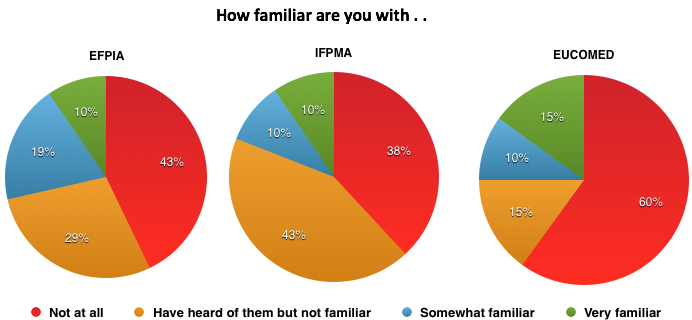European Medical Industry Associations can have an impact on your medical meeting attendance!
Do you have European attendees or speakers at any of your medical meetings?
There are several health care industry related trade associations that have developed policies and guidelines regarding the support of and participation in medical meetings for their member companies.
Even for US based health care associations that only organize meetings in North America, these guidelines and policies can have an impact on your meeting attendance and sponsorship if you;
- have European Health Care Professionals (HCP's) as attendees or speakers
- have European Health Care companies as sponsors or exhibitors
Specifically these companies and their trade associations have responded to potential legistaive actions and have therefore opted for greater self regulation.
The result is that greater scrutiny has been placed on different aspects of medical association meetings, including the time and place of the event, any ancillary spouse or recreational activities and the quantity and quality of the scientific content.
For example, meetings that are hosted in January in Zermatt, Switzerland or Banff, Canada at a ski resort venue are considered inappropriate as they imply a heavy compnent of recreation or that they are not serious scientific or medical events. Likewise, a meeting in Las Vegas, Nevada or Macao, China in a hotel that also contains a gambling casino is likewise "off limits".
What happens if my meeting is "black-listed"?
The guidelines developed by the medical trade associations in alomost all cases are mandatory for their membership. Therefore if EUCOMED or EFPIA determine that your event does not meet their criteria for any reason and is deemed to not qualify for approval, members of these associations will not be allowed to support your event in any way, including; not supporting the attendance of physiciasns, not sending attendees or not exhibiting.
For US based medical societies and associations that have a significant number of European HCP's attending their meetings, being declined as an acceptable meeting can have significant consequences.
Ignorance is not bliss
In order to understand if US based medical societies are aware of these European medical trade association policies and guidelines, we conducted a brief survey.
While only 41% of the associations surveyed organized medical meetings outside the U.S., nearly 100% had European HCP's as attendees, either for their U.S. held events or abroad.
Despite nearly all associations surveyed having a significant stake in this issue, only a small percentage (10-15%) were very familiar with the main European medical trade associations or their medical meetings guidelines.

All of this points to the need for US medical societies and associations to better understand their potential exposure to the risk of losing significant European physcician and other medical professional attendance to their U.S. and international events.
_
Want more information?
GLOBALSTRAT is a leading provider of expert advice and guidance on how to develop an international growth strategy. You can request information or sign-up for our free international association strategy newsletter.
